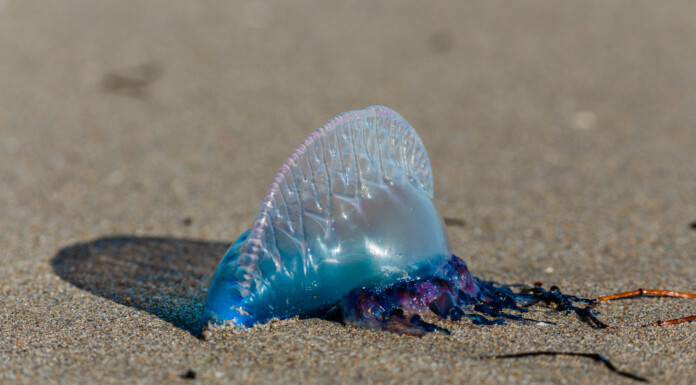Those taking a dip in the sea this summer have been cautioned to keep an eye out for jellyfish as the small, stinging invertebrates tend to gather around beaches at this time of year.
While large numbers of bluebottle jellyfish have already been reported on several beaches up north, Riversdale Surf Life Saving Club captain Mike Taylor reassured the Times-Age that they hadn’t observed any in the region so far.
“There’s nothing that we’ve seen and none that have washed up on the high tide line on the beach,” Taylor said.
“We’re cautiously watching for that all the time.”
Emeritus researcher and jellyfish expert at the National Institute of Water and Atmospheric Research [Niwa] Dennis Gordon said the boom in jellyfish numbers is linked to “more productive waters”.
“As soon as the days start to get longer and there’s more daylight, you get a bloom of more plankton,” Gordon said.
“When there is more plant plankton, there’s more animal plankton, which means you get more shrimps and things – and jellyfish feed on those small crustaceans.”
There are around 35 species of jellyfish found in New Zealand waters.
Species to look out for include lion’s mane, spotted jellyfish, and bluebottle – also known as Portuguese man o’ war – which can all deliver a nasty sting.
While it’s generally safe to touch the bell of the jellyfish, Gordon advised that, as a general rule, it is best not to touch the tentacles because they contain microscopic stinger capsules.
“Those who do plan on getting in the water should be cautious and wear a wetsuit if it is known that there may be jellyfish in the area.”
Common symptoms of a jellyfish sting include a burning sensation on your skin, a tingling or numbness where the sting occurred, and the sting area turning purple or red.
Despite a popular belief, Niwa advises that the way to treat a sting does not involve the use of urine, which could actually make the pain worse, as there was no way of telling its pH and chemical makeup.
Instead, flush the area with seawater to remove the tentacles and use a dry towel to dislodge any remaining tentacles before immersing the area in hot [but comfortable] water for 20 minutes.


